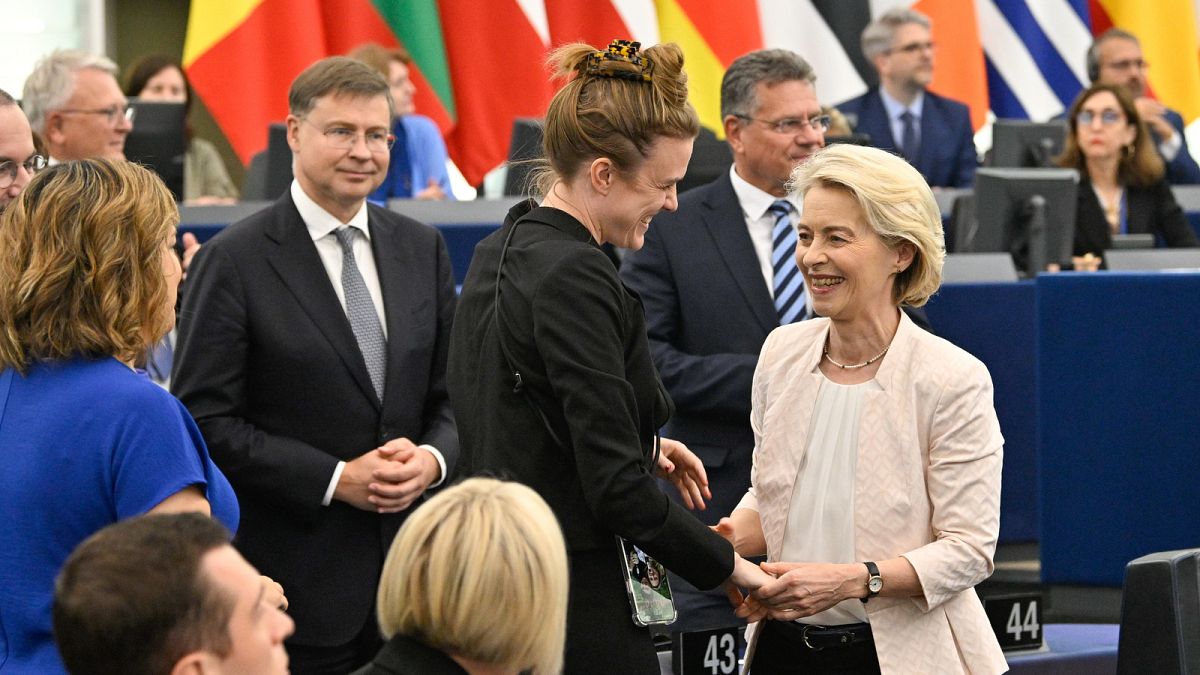In Strasbourg’s European Parliament, Ursula von der Leyen was re-elected as the European Commission chief with a comfortable majority of 41 votes. This victory was thanks to the support from her own European People’s Party (EPP), the Liberals of Renew Europe, the centre-left Socialists and Democrats, and the Greens group. Despite fears of a rightward shift in her leadership, von der Leyen’s re-election was supported mainly by left-leaning parties, with some right-wing groups choosing to vote against her.
Among those who opposed von der Leyen’s re-election were the Brothers of Italy (FdI) and the majority of the European Conservatives and Reformists (ECR) group. However, the New Flemish Alliance (NVA) and Czechia’s Civic Democratic Party (ODS) decided to back von der Leyen. The Greens, in particular, supported her based on her commitment to the European Green Deal and the rule of law, as well as promises to address the housing crisis in EU countries.
The Greens group played a key role in helping von der Leyen secure her second term, with reports suggesting they provided around 45 of their 53 votes to reach the necessary majority. This support gives the Greens political leverage in the upcoming term, despite their losses in the previous European election. Von der Leyen’s coalition, consisting of centrist and left-leaning parties, celebrated the victory as a major win for pro-European forces, emphasizing the importance of collaboration and unity in facing challenges.
While centrists and left-leaning groups are pleased with von der Leyen’s re-election, there are concerns about the stability of coalitions in the European Parliament. Right-wing majorities could potentially emerge to block legislation in the future. However, Greens MEP Bas Eickhout expressed confidence that the EPP, as a party that wants to build, will work with the four-party majority and avoid veering rightwards. Despite criticism from far-right and left-wing groups, von der Leyen’s focus on progressive agendas such as climate change and housing reflects the priorities of pro-European forces.
Looking ahead, von der Leyen’s new political agenda, influenced by liberal and centrist visions, aims to strengthen European defense, increase competitiveness, and defend common values. The EU faces challenges in navigating political dynamics within the Parliament, but the re-election of von der Leyen signals a commitment to cooperation and progress. The influence of Greens as kingmakers underscores the importance of unity in promoting a pro-European and pro-climate agenda in the upcoming term.











